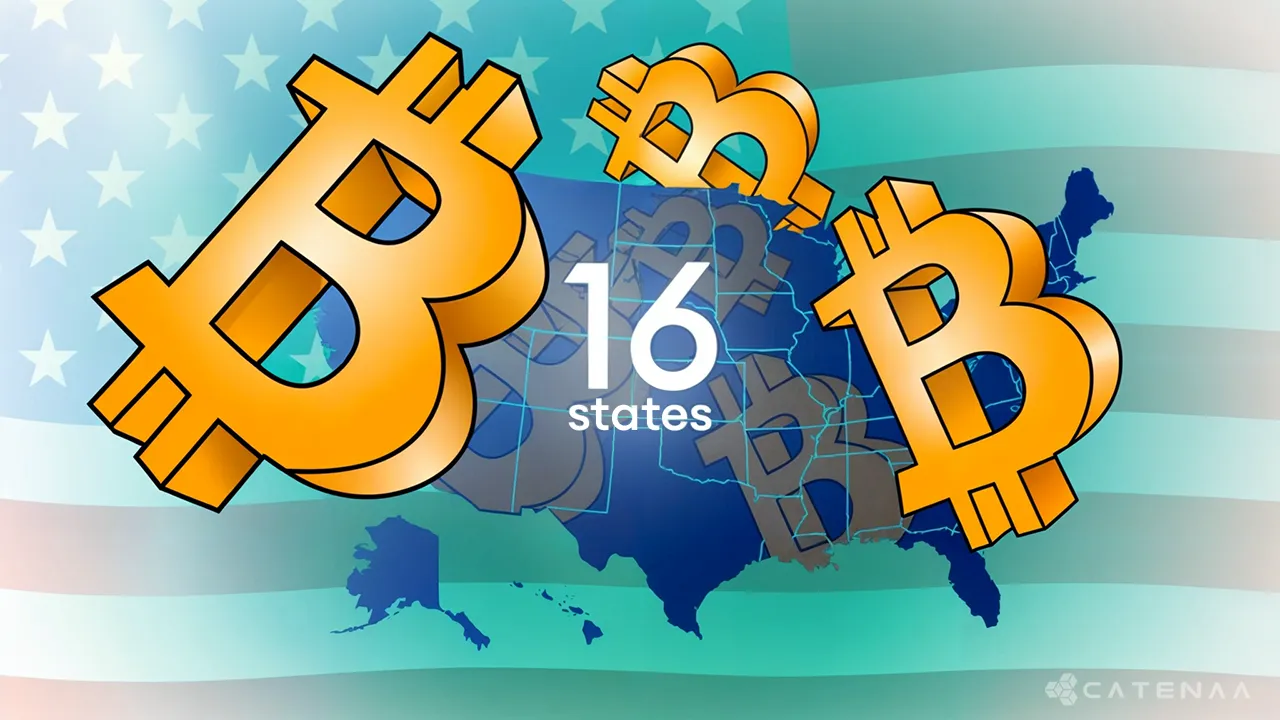Catenaa, Monday, February 17, 2025 – A growing number of US states are considering legislation to establish Bitcoin reserves or allow cryptocurrency investments for public funds, signaling a shift in state-level financial policy.
Utah is leading the charge with its Blockchain and Digital Innovation Amendments bill, which cleared the House Economic Development and Workforce Services Committee with an 8-1 vote on January 28.
The bill would authorize the state treasurer to allocate up to 5% of certain public funds into “qualifying digital assets,” requiring a minimum market capitalization of $500 billion over the past year.
Bitcoin is the only cryptocurrency meeting that criterion.
New Mexico recently joined the movement with its Strategic Bitcoin Reserve Act (SB275), introduced on February 4, proposing a similar 5% allocation of public funds into Bitcoin. Arizona’s Senate Finance Committee advanced SB1025, which would permit up to 10% of public funds, including pension systems, to be invested in cryptocurrencies.
Wyoming and Massachusetts have also entered the fray, with Massachusetts allowing up to 10% of its stabilization fund to be invested in Bitcoin or other digital assets.
Texas is taking a dual approach, with a Senate bill proposing a 1% allocation from its general revenue fund and a House bill focusing on Bitcoin donations and crypto-to-Bitcoin conversions.
States including Oklahoma, Missouri, New Hampshire, Pennsylvania, and Ohio have introduced or are considering similar bills. North Dakota’s proposal, however, was rejected on Feb. 4. The Bitcoin Reserve Monitor is actively tracking the legislative status of these initiatives.


